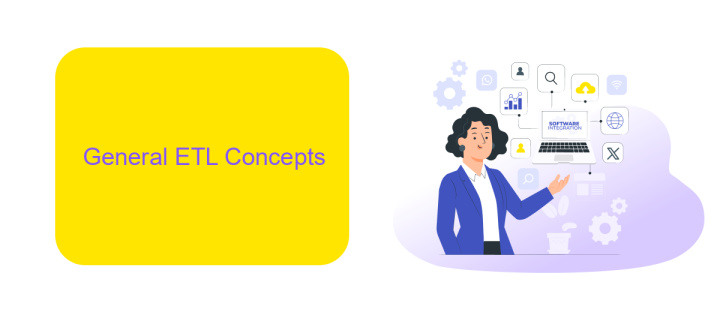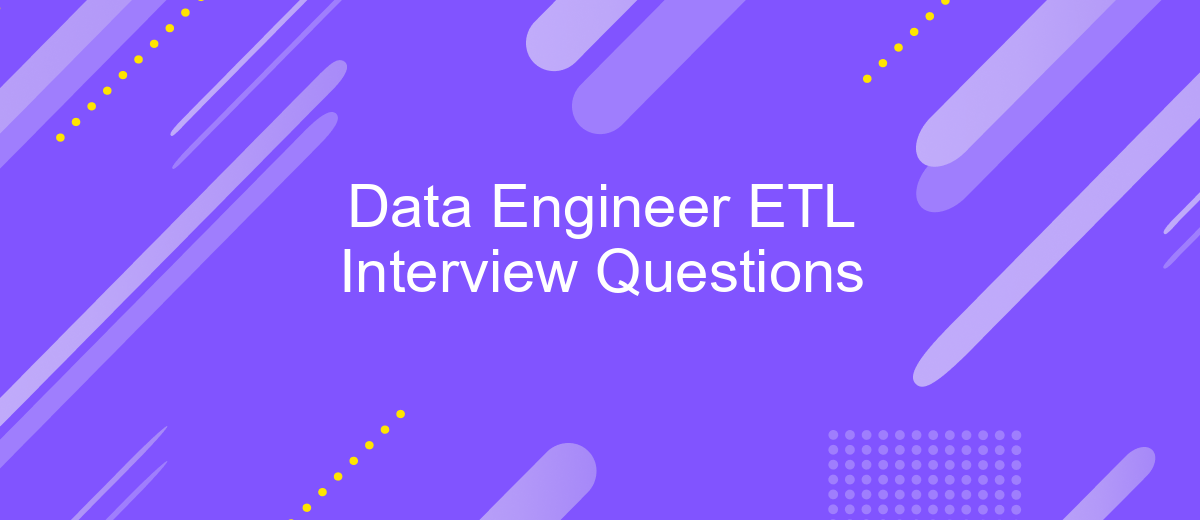Data Engineer ETL Interview Questions
Preparing for a Data Engineer ETL interview can be daunting, given the complexity and range of topics involved. This article aims to ease your journey by providing a comprehensive list of commonly asked ETL interview questions. From data integration and transformation techniques to performance optimization and troubleshooting, these questions will help you showcase your expertise and secure your next role as a Data Engineer.
Introduction
Data engineering, particularly the ETL (Extract, Transform, Load) process, is a critical component in managing and analyzing large datasets. Preparing for an interview in this domain requires a solid understanding of various concepts, tools, and best practices. This guide aims to help candidates by highlighting some of the most common and essential questions asked during a Data Engineer ETL interview.
- What are the key steps in the ETL process?
- How do you handle data quality issues during ETL?
- Can you explain the differences between ETL and ELT?
- What tools and technologies are you proficient in for ETL?
- How do you optimize ETL processes for performance?
Understanding these questions and their answers will not only prepare you for the interview but also enhance your overall knowledge of data engineering. Additionally, leveraging integration services like ApiX-Drive can streamline your ETL processes, making it easier to connect various data sources and automate workflows efficiently.
General ETL Concepts

ETL, which stands for Extract, Transform, Load, is a fundamental concept in the realm of data engineering. The process begins with extracting data from various sources, such as databases, APIs, or flat files. This data is then transformed into a suitable format or structure for analysis, which may include filtering, aggregating, or enriching the data. Finally, the transformed data is loaded into a destination system, such as a data warehouse or data lake, for further analysis and reporting.
Understanding the intricacies of ETL processes is crucial for data engineers, as it ensures data integrity and consistency across systems. Tools and services like ApiX-Drive can streamline ETL workflows by automating data integration tasks. ApiX-Drive offers a user-friendly interface to connect different data sources and destinations, reducing the need for manual coding and allowing for real-time data synchronization. Leveraging such tools can significantly enhance the efficiency and reliability of ETL processes, making them indispensable in modern data engineering practices.
Technical ETL Skills

Technical ETL skills are essential for any Data Engineer, as they ensure the efficient extraction, transformation, and loading of data. Mastery of these skills allows for the seamless integration of various data sources and the creation of robust data pipelines.
- Data Extraction: Proficiency in extracting data from various sources such as databases, APIs, and flat files. Tools like SQL, Python, and specialized services like ApiX-Drive can be invaluable.
- Data Transformation: Ability to clean, normalize, and transform data using tools like Apache Spark, Talend, and custom Python scripts to ensure data quality and integrity.
- Data Loading: Expertise in loading transformed data into data warehouses or data lakes. Familiarity with platforms like Amazon Redshift, Google BigQuery, and Snowflake is crucial.
- Workflow Orchestration: Experience with scheduling and managing ETL workflows using tools like Apache Airflow, Luigi, or Prefect to ensure timely data processing.
In addition to these technical skills, understanding and implementing data integration solutions is vital. Services like ApiX-Drive can streamline the process of connecting various applications and automating data workflows, making the ETL process more efficient and less error-prone.
Behavioral Questions

Behavioral questions in a Data Engineer ETL interview are designed to understand your problem-solving skills, teamwork, and how you handle various work situations. These questions often focus on your past experiences and how you've managed challenges in previous roles.
When preparing for these questions, reflect on your past projects, especially those involving ETL processes. Consider times when you had to troubleshoot complex data issues, collaborate with cross-functional teams, or implement new tools or technologies to improve data workflows.
- Describe a time when you faced a significant data integration challenge. How did you resolve it?
- How do you prioritize tasks when working on multiple ETL projects simultaneously?
- Can you provide an example of how you improved an ETL process to make it more efficient?
- How do you handle conflicts within your team, especially when working on tight deadlines?
- Have you used any tools like ApiX-Drive for integrating data from various sources? Describe your experience.
These questions not only assess your technical skills but also your ability to communicate effectively and work well under pressure. Demonstrating your experience with tools like ApiX-Drive can showcase your proficiency in modern data integration solutions.
Case Studies
In a recent case study, a data engineering team faced the challenge of migrating a legacy ETL pipeline to a more scalable and efficient solution. The existing system was unable to handle the increasing volume of data, leading to frequent downtimes and performance issues. The team decided to implement Apache Airflow for orchestrating ETL workflows, along with Apache Spark for distributed data processing. This combination significantly improved the pipeline's performance and reliability, enabling the company to process large datasets in a fraction of the time previously required.
Another case involved integrating multiple data sources into a unified data warehouse. The team utilized ApiX-Drive to streamline the integration process, connecting various APIs and automating data transfer. This approach eliminated manual data entry and reduced errors, allowing the engineers to focus on more strategic tasks. By leveraging ApiX-Drive's capabilities, the company was able to achieve real-time data synchronization across multiple platforms, enhancing their data analytics and decision-making processes.
FAQ
What are the main responsibilities of a Data Engineer in the context of ETL?
What tools and technologies are commonly used in ETL processes?
How do you handle data quality issues during the ETL process?
What is the importance of data integration in ETL processes?
Can you recommend a service for automating and managing ETL workflows?
Apix-Drive is a simple and efficient system connector that will help you automate routine tasks and optimize business processes. You can save time and money, direct these resources to more important purposes. Test ApiX-Drive and make sure that this tool will relieve your employees and after 5 minutes of settings your business will start working faster.

